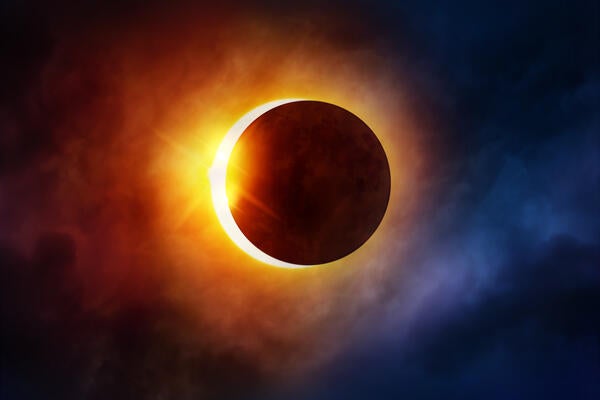WATERLOO, Ont. (Tuesday, March 22, 2011) - Future observatories on the moon that will allow researchers to examine problems in astrophysics will be explored in a free public lecture at the University of Waterloo on Thursday.
The talk, entitled Exploring the Cosmos from the Moon, will be given by Jack Burns, a professor in the department of astrophysical and planetary sciences at the University of Colorado, Boulder.
"The moon is a unique platform for astrophysical measurements of gravitation, the sun and the universe," said Burns. "In my lecture, I will show how plans for a giant radio telescope on the moon will be used to study the early universe."
Burns also serves as chair of the National Aeronautics and Space Administration Advisory Council's Science Committee and chair of the American Astronomical Society’s committee on science and public policy.
The lecture is hosted by the Guelph-Waterloo Physics Institute and Waterloo's faculty of science.
"We would like to welcome the community for what should be a fascinating talk on space," said Brian McNamara, physics and astronomy professor and director of GWPI. "Jack Burns is a very distinguished scientist and we are delighted to welcome him to our campus."
The event will be held, beginning at 7 p.m., on Thursday, March 24 at the school of optometry, room 1129. Coffee and dessert will be offered from 6:30 until 7 p.m.
Please RSVP to scienceevents@uwaterloo.ca. Parking will be available for free in lot O, located off of Columbia Street West.
About Waterloo Science
Since its founding in 1959, Waterloo's faculty of science has been instrumental in placing the university at the forefront of innovation, discovery and learning. The faculty offers more than 50 core science specializations and options in the departments of biology, physics and astronomy, chemistry, and earth and environmental sciences. It is also home to two world-class professional schools - Canada's only English-speaking optometry school and one of only two pharmacy co-op programs in North America. For more information, go to www.science.ca.
About Guelph-Waterloo Physics Institute
The Guelph-Waterloo Physics Institute began in 1981 and was Canada's first joint graduate program in physics. With over 80 faculty members and 130 graduate students, research interests and expertise of Guelph's and Waterloo's nearby campuses are combined to offer a wider range of courses and research in such areas as applied physics, astrophysics and gravitation, and biophysics. For more information, go to gwp.on.ca.
About Waterloo
The University of Waterloo, located at the heart of Canada's Technology Triangle, is one of Canada's leading comprehensive universities. Waterloo is home to 30,000 full- and part-time undergraduate and graduate students who are dedicated to making the future better and brighter. Waterloo, known for the largest post-secondary co-operative education program in the world, supports enterprising partnerships in learning, research and discovery. For more information about Waterloo, visit www.uwaterloo.ca.








